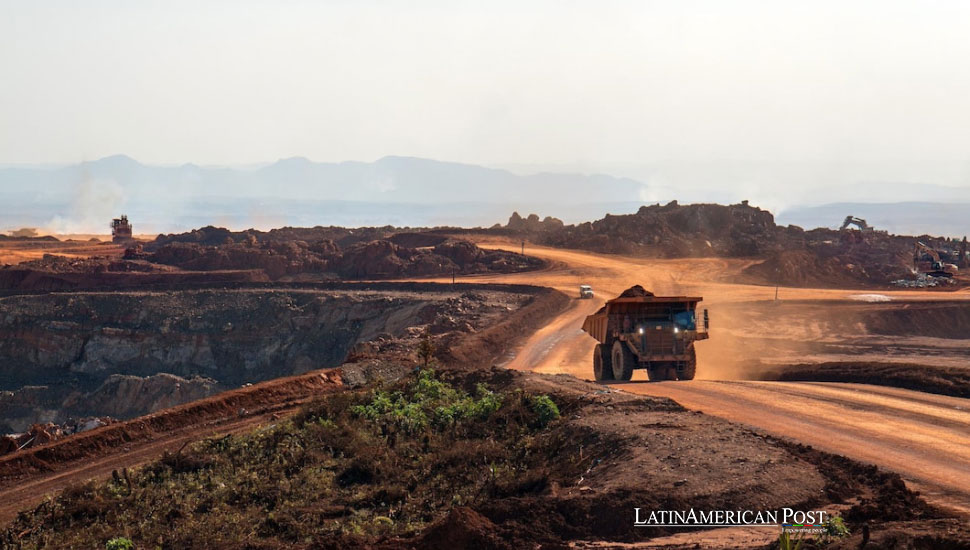Surge in Social Conflicts Within Colombia’s Mining Energy Sector

In 2023, Colombia experienced a significant 46% increase in social conflicts within the mining-energy sector compared to 2022, primarily driven by labor rights demands, as the People’s Defender reported.
Colombia, a country with a vibrant but complex social and economic landscape, has seen a sharp rise in social conflicts within its mining-energy sector. According to a recent report by the People’s Defender, Carlos Camargo, these conflicts increased by 46% in 2023 compared to the previous year, highlighting a growing tension between economic development and social and environmental responsibilities.
The Root of the Conflict
The report identified 130 social conflict events in 2023, up from 89 in 2022, signaling escalating unrest in regions crucial to Colombia’s mining and energy output. These conflicts range from protests against unfair labor practices in the Cerrejón coal mine to indigenous communities’ resistance to the expansion of oil drilling in the Amazon. Most of these disputes are rooted in labor rights issues, local labor hiring, and environmental concerns, which account for over 65% of the grievances recorded.
Labor rights issues have been at the forefront, particularly the demand for better working conditions and fair wages. The mining and energy sectors are notorious for their rigorous working conditions, and despite being pivotal to the national economy, they often fail to ensure adequate worker protections and benefits, leading to widespread dissatisfaction and unrest.
Environmental conflicts constitute a significant portion of the grievances, with 32% of the disputes related to environmental degradation and resource management. The extraction of natural resources often leads to ecological damage that disproportionately affects local communities, including indigenous groups, who depend on these ecosystems for their livelihoods.
In regions like Magdalena Medio, the exploitation of hydrocarbons has severely impacted water sources, directly affecting the lives of local farmers and fishermen. Similarly, in Chocó and La Guajira, concerns have risen over gold and copper mining activities that degrade the environment and fail to provide economic benefits to local communities, leaving them in a state of economic uncertainty and environmental vulnerability.
Historical Context and Economic Considerations
Colombia’s reliance on its mineral-rich lands for economic development is familiar. The country has a long history of mining dating back to pre-colonial times when indigenous peoples mined emeralds and gold. Today, Colombia is one of the largest coal producers in Latin America and the world’s fourth-largest coal exporter, making the sector a cornerstone of its economic structure.
However, the sector’s impact on the environment and local communities has often overshadowed the economic benefits. The extraction industries have been linked to deforestation, water contamination, and a range of health problems for local populations, contributing to the conflicts seen today.
The increase in social conflicts has prompted calls from various stakeholders, including government officials and advocacy groups, for a more balanced approach to resource management. Carlos Camargo has urged national and regional authorities to strengthen monitoring and conflict management activities within the sector to ensure that all parties are heard and that dialogue prevails over confrontation. The private sector, on the other hand, is being encouraged to adopt more sustainable practices and to prioritize the well-being of local communities over short-term profits.
Towards a Sustainable Future
As Colombia faces economic development and environmental sustainability challenges, the need to transition to greener energy sources becomes increasingly apparent. This transition, however, must be managed carefully to prevent further social unrest. While it could lead to a reduction in environmental damage and health risks associated with traditional energy sources, it could also result in job losses and economic instability in regions heavily dependent on the mining and energy sectors. The government and the private sector must work together to ensure that economic growth does not come at the expense of environmental degradation and social inequality.
Investments in sustainable technologies and practices, fair labor practices, and respect for local communities’ rights and traditions could help mitigate conflicts. Furthermore, enhancing transparency and community participation in mining and energy projects can foster a more harmonious relationship between the industry and the communities it impacts, offering a glimmer of hope for a more balanced and sustainable future.
Also read: Colombian Government Reports Huge Losses in Victim Fund 2018-2020
The surge in social conflicts within Colombia’s mining-energy sector in 2023 is a wake-up call for all stakeholders involved. It underscores the urgent need for a comprehensive approach that balances economic benefits with social and environmental responsibilities. By fostering dialogue, respecting community rights, and embracing sustainable practices, Colombia can ensure that its rich natural resources contribute to the well-being of all its citizens, not just a privileged few. As the country continues to navigate these challenges, the world watches closely, hoping for solutions to serve as a model for resource-rich nations grappling with similar issues.




